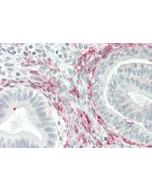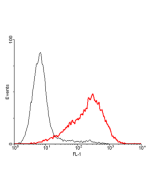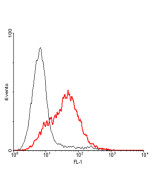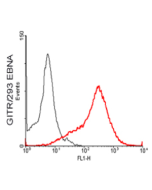Cookie Policy: This site uses cookies to improve your experience. You can find out more about our use of cookies in our Privacy Policy. By continuing to browse this site you agree to our use of cookies.
AdipoGen Life Sciences
GITRL, Soluble (mouse) (rec.)
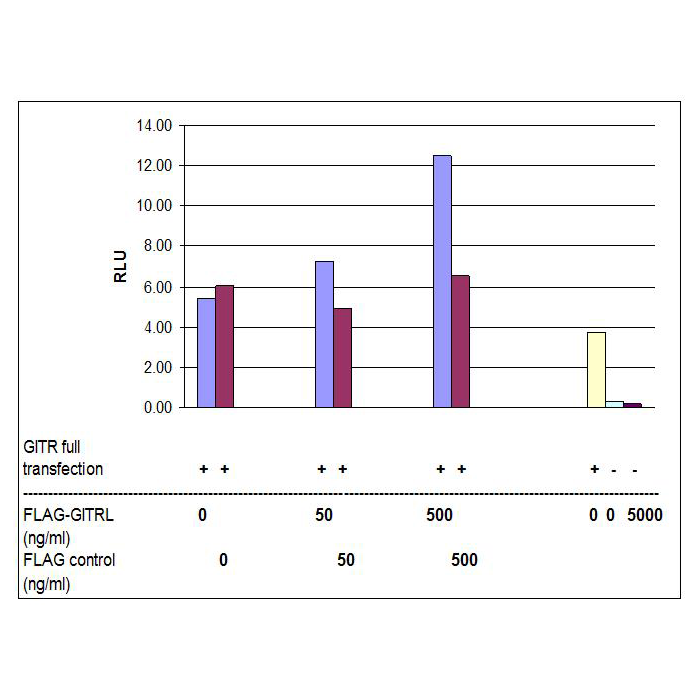
HEK293 cells were transiently transfected with 20ng of a (NF-κB)-Luc reporter, 2ng of a Renilla luciferase, and with 20ng of a GITR full length encoding construct. At 24hr after transfection, the indicated amounts of GITRL, Soluble (mouse) (rec.) or a FLAG® control protein were treated for 4hr and followed by the measurement of dual luciferase activities.
| Product Details | |
|---|---|
| Synonyms | Glucocorticoid-induced TNF Receptor Ligand; AITRL; Activation-inducible TNF-related Ligand; TNFSF18 |
| Product Type | Protein |
| Properties | |
| Source/Host | HEK 293 cells |
| Sequence |
The extracellular domain of mouse GITRL (aa 45-173) is fused at the N-terminus to a FLAG®-tag. |
| Crossreactivity | Mouse |
| Specificity |
Binds to mouse GITR. |
| Biological Activity |
Induces GITR-mediated NF-κB activation in HEK 293 cells. |
| MW | ~22kDa (SDS-PAGE) |
| Purity | ≥90% (SDS-PAGE) |
| Endotoxin Content | <0.1EU/μg purified protein (LAL test; Lonza). |
| Concentration | 0.5mg/ml |
| Formulation | Liquid. 0.2μm-filtered solution in 10mM glycine, pH 10.0. |
| Other Product Data |
UniProt link Q7TS55: GITR Ligand (mouse) FLAG is a registered trademark of Sigma-Aldrich Co. |
| Shipping and Handling | |
| Shipping | BLUE ICE |
| Short Term Storage | +4°C |
| Long Term Storage | -20°C |
| Handling Advice |
After opening, prepare aliquots and store at -20°C. Avoid freeze/thaw cycles. For maximum product recovery after thawing, centrifuge the vial before opening the cap. |
| Use/Stability |
Stable for at least 6 months after receipt when stored at -20°C. Working aliquots are stable for up to 3 months when stored at -20°C. |
| Documents | |
| MSDS |
 Download PDF Download PDF |
| Product Specification Sheet | |
| Datasheet |
 Download PDF Download PDF |
GITRL (Glucocorticoid-induced TNF receptor ligand) is expressed on dendritic cells (DC), monocytes, macrophages, B cells, activated T cells, endothelial cells, osteoclasts and various healthy non-lymphoid tissues (e.g. testis). GITRL is constitutively expressed and released as soluble form by solid tumors and various hematopoietic malignancies. GITRL causes differentiation of osteoclasts, activation of macrophages, but also alteration of carcinoma and leukemia cells and influences apoptosis. Binding to GITR is important in regulating T cell proliferation and TCR-mediated apoptosis. GITRL is implicated in development of autoimmune diseases and in the immune response against infectious pathogens and tumors.
Identification of a ligand for glucocorticoid-induced tumor necrosis factor receptor constitutively expressed in dendritic cells: K.Y. Yu, et al.; BBRC 310, 433 (2003)







